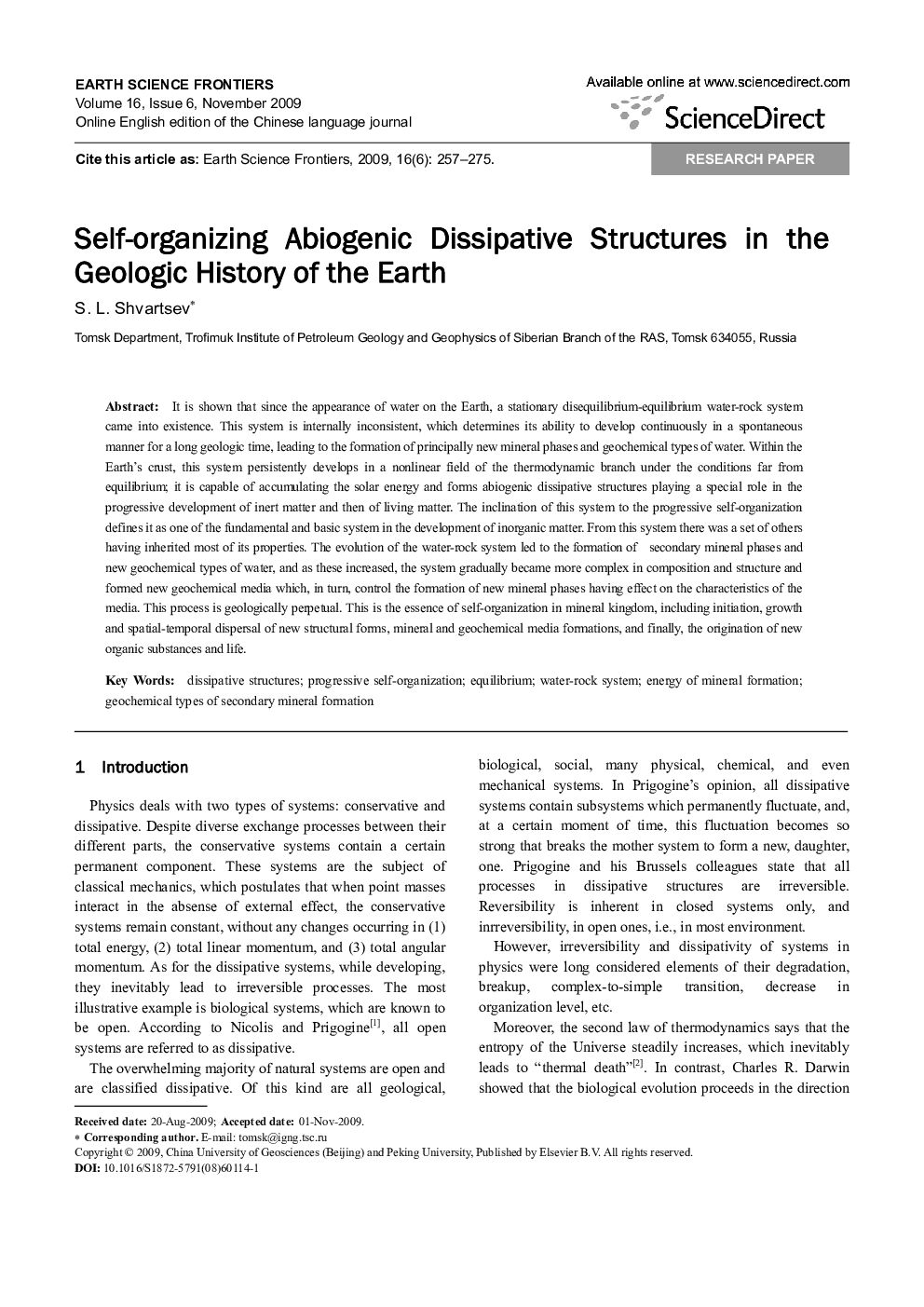| Article ID | Journal | Published Year | Pages | File Type |
|---|---|---|---|---|
| 4701487 | Earth Science Frontiers | 2009 | 19 Pages |
It is shown that since the appearance of water on the Earth, a stationary disequilibrium-equilibrium water-rock system came into existence. This system is internally inconsistent, which determines its ability to develop continuously in a spontaneous manner for a long geologic time, leading to the formation of principally new mineral phases and geochemical types of water. Within the Earth's crust, this system persistently develops in a nonlinear field of the thermodynamic branch under the conditions far from equilibrium; it is capable of accumulating the solar energy and forms abiogenic dissipative structures playing a special role in the progressive development of inert matter and then of living matter. The inclination of this system to the progressive self-organization defines it as one of the fundamental and basic system in the development of inorganic matter. From this system there was a set of others having inherited most of its properties. The evolution of the water-rock system led to the formation of secondary mineral phases and new geochemical types of water, and as these increased, the system gradually became more complex in composition and structure and formed new geochemical media which, in turn, control the formation of new mineral phases having effect on the characteristics of the media. This process is geologically perpetual. This is the essence of self-organization in mineral kingdom, including initiation, growth and spatial-temporal dispersal of new structural forms, mineral and geochemical media formations, and finally, the origination of new organic substances and life.
